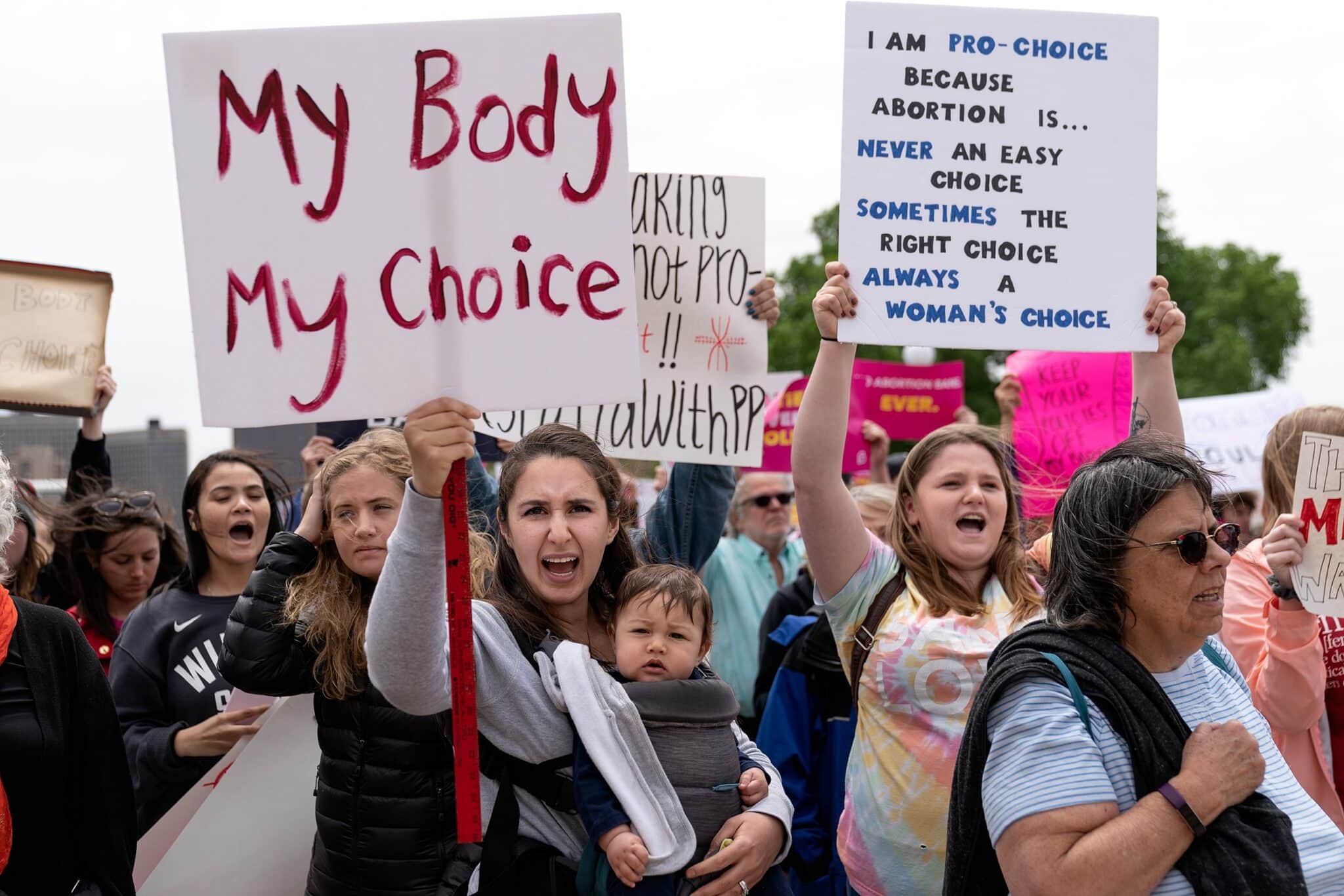Democratic state lawmakers want to ensure that women who travel to Pennsylvania for abortions and the health care providers who assist them are safe from criminal prosecution from other states.
According to the memo circulated by State Representatives Carol Hill-Evans (D-York), Emily Kinkead (D-Allegheny) and Christopher Rabb (D-Philadelphia), their legislation will “prohibit Pennsylvania law enforcement, state agencies, local governments, and their employees from cooperating with out-of-state investigations into specified medical procedures that are legally obtained here.”
Since the Supreme Court’s Dobbs v. Jackson decision in 2022 overturned Roe v. Wade and allowed individual states to criminalize abortion procedures, the rate at which women have traveled across-state for abortion care has nearly doubled. This legislation would protect those women, and Pennsylvania health care providers who provide such abortion care, from punishment by out-of-state authorities.
“Women are coming [to Pennsylvania] from all over the United States to seek abortion care. This legislation seeks to protect all of them,” said Rep. Kinkead. “No one should be criminalized in their home state for doing something that is legal in ours.”
Although recent data from 2023 showed that most women who traveled to Pennsylvania for abortions came from Ohio, that may change because the state’s voters chose to put constitutional protections in place. Representative Hill-Evans, however, stated that “just because abortion is technically legal in some cases in a particular state, that doesn’t mean it’s accessible – so whether or not women come to PA may depend on that accessibility.”
Since 2022, 12 states have criminalized abortion and many others have enacted restrictive laws, such as bans on receiving an abortion after six or 12 weeks. Nevertheless, abortion rates have actually increased throughout the United States in that time frame. This increase is due to a combination of factors, including expanded telehealth capacity, the ease of receiving medication abortion pills by mail, and the lower cost of telehealth abortions through virtual clinics compared to in-person care.
Numbers of women traveling to Pennsylvania from nearby states increased after the Dobbs decision and drove a small spike in total abortions performed in the state.
Some anti-abortion states have taken steps to prevent pregnant women from traveling out-of-state for abortions. Idaho, for example, enacted an “abortion trafficking” law in 2023 which prevents people from helping minors who are not their children receive abortions in other states. Tennessee enacted copycat legislation in 2024, and some Texas counties and cities allow people to sue anyone who travels through their county or city to receive an out-of-state abortion.
In extreme cases, anti-abortion state authorities have attempted to prosecute out-of-state health care providers. One notable example was in February 2025, when Texas and Louisiana tried to slap civil and criminal penalties on a New York doctor who allegedly provided abortion pills to minors from those states.
Twenty-two states and Washington D.C. currently have protections, known as “shield laws,” in place to prevent cooperation with out-of-state authorities in such cases where they attempt to prosecute pregnant women and those who aid them when they seek abortion care in states where it is legal. In the case of Pennsylvania, Governor Tom Wolfe signed a shield law through executive order in 2022.
Representative Kinkead said that although other states have not yet sought cooperation with Pennsylvania authorities in abortion cases, the legislation she helped propose is a critical next step to protect abortion rights in the Commonwealth:
“This legislation and Gov. Wolf’s 2022 executive order were born out of the same fear – that elected officials in states that have banned abortion have also publicly talked about creating statutes that would allow them to reach into other states and prosecute individuals for seeking legal health care. Gov. Wolf was able to use his executive authority to make clear that Pennsylvania would not cooperate with any such efforts, but executive orders are temporary, and a future Governor may not be inclined to keep that policy in place … I believe it is important for Pennsylvania to make clear, statutorily, that other states need to keep their noses out of Pennsylvania business.”
She went on to note that the goal of this legislation is to “proactively protect the right to an abortion in Pennsylvania, to protect doctors and nurses who perform abortions and care for abortion patients from legal and physical assaults, and to ensure that abortion is treated as health care.”
Hill-Evans also stated that the legislation is intended to protect access to abortion care in our state.
“Democrats simply want to make sure that people can decide when and how they have families, for Pennsylvania women and any other woman who needs care in our commonwealth,” she said.
Legislation of this nature is part of a larger push by state Democrats to protect Pennsylvanians’ right to health care, according to Kinkead. She touted the fact that Democrats had just pushed four bills seeking to “codify the protections of the Affordable Care Act into law in Pennsylvania because we have a responsibility to protect Pennsylvanians’ right to health care regardless of whatever happens at the national level. Protecting abortion access is just one piece of our goal to protect access to health care.”
Despite the fact that most Pennsylvanians support abortion protections, such legislation is unlikely to get far in the GOP-controlled Senate. In November 2023, the House passed a similar “shield law” bill, but it failed to pass the Senate.
“Preserving access to abortion care is an important issue for Pennsylvanians, regardless of party,” according to Hill-Evans. “We’ve seen in other states that when the question is put directly to voters, they vote resoundingly in favor of abortion rights.”
However, she went on to say that while protecting the rights of providers to practice evidence-based medicine should be a nonpartisan, commonsense goal, “unfortunately we know some legislators consider the exam room their political stomping grounds.”






